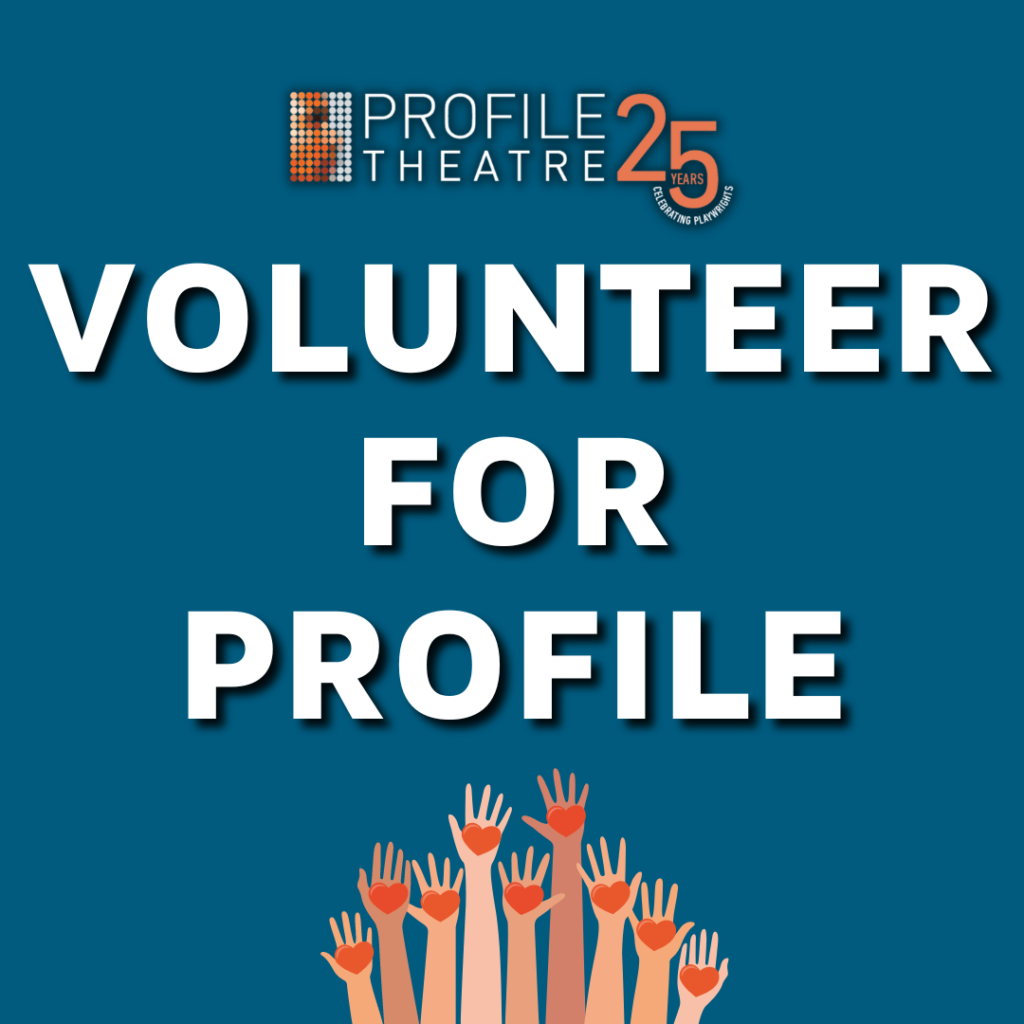Madeleine Tran | Fight Choreographer
Madeleine Tran is a Vietnamese-American soprano, actor, fight choreographer, and occasional street and festival performer. She was born in Tacoma, WA but studied voice at the University of Portland under Dr. Nicole Hanig. Madeleine also studies and teaches stage combat under the mentorship of Kristen Mun. She has performed locally with many companies, including ART, Profile Theater, Third Rail Repertory, Portland Center Stage, Shaking The Tree, Portland Opera, and Renegade Opera.
Olivia Vavroch | Set Dressing & Properties Coordinator
Olivia Vavroch is a designer whose work incorporates texture, artifacts, and layers of playful details to tell stories of compassion and emotional interconnectivity across time and space. In addition to Profile Theatre, her work has been seen at 21Ten, Third Rail Rep, Imago Theatre, Speculative Drama, Portland Revels, PassinArt, Crave Theatre Company, Fuse, Sh/ft, Enlightened Theatrics, and TAC/PSP. Through her Vavroch Glass & Art Studio, Olivia currently teaches stained glass and prop food sculpture classes at PCC. Olivia is currently developing a new body of multimedia sculptures and garments that visualize the impacts of generational and complex trauma in the body.
Special thanks to David Monacelli
Josh FS Moser | Dialect Coach
Josh “J” Feliciano-Sanchez Moser (they/them) is an NYC based voice/dialect coach represented by United Talent Agency. They are thrilled to be coaching again with Profile Theatre. Previous productions include Awe/Struck, The Elaborate Entrance of Chad Deity, and Welcome to Arroyo’s. Additional Coaching includes: Utah Shakespeare Festival; Phoenix Theatre Ensemble; Yale; Princeton; Brown U/Trinity Repertory; CNN’s Harry Enten; Savannah Stage Company; Savannah Shakes; and others. Josh is a Certified Teacher of both Fitzmaurice Voicework® and Knight Thompson Speechwork, with an MFA from Savannah College of Art and Design. Currently, Josh is an Assistant Professor at Kean University, as well as a Senior Consultant for Strictly Speaking Group. Additional teaching experience details available at www.JoshFSMoser.com. Proud member: Actor’s Equity Association, the Hispanic Organization of Latin Actors, the Voice and Speech Trainers Association.
Joe Bowden | Director of Photography, Desert Island Studios
Joe Bowden is a mixed Asian American writer, director, cinematographer, and founder of Desert Island Studios, which is a sound stage and full service production company based in Portland OR. His film credits include shorts, features, and music videos such as Private Chat (Dir. DP) Two Detectives, (Dir. written by) The feature film Song of Summer, (DP) Planet #5 (Dir. DP written by) Color Theories (DP) At Skyview Enterprises (DP) Casualties (DP), and Empano Gleasium, (Dir. DP, written by), which is premiering at Portland Panorama in 2025.
Alan Cline | Video Designer
Alan is a video designer and technician living and working in Portland, Oregon. His work has previously been featured with Profile Theatre in their production of The Baltimore Waltz, as well as with Portland Playhouse, Oregon Children’s Theatre, Artist’s Rep, Third Rail Rep, and others.
Cullen Elliott & Saibi Khalsa | Sound Designers
Cullen and Saibi (Weirdbird Sound Design) Are a design team based out of Portland Oregon. Saibi grew up in Santa Fe and studied sound design at both Sarah Lawrence College and Santa Fe University of Art and Design, Cullen studied sound at Southern Oregon University, they met while working at the Oregon Shakespeare Festival, and have been making art together ever since! Recent credits include Laughs in Spanish (Santa Fe Playhouse) Notes From The Field (Portland Playhouse), and As You Like It (Cal Shakes). This is their debut design with Profile Theatre and it’s been an absolute joy so far!
Kristeen Willis | Lighting Designer
Kristeen is excited to be designing lights for Profile Theatre again. She received her Bachelor of Arts from Centre College in Danville, Kentucky and her Master of Fine Arts in lighting design from Wayne State University, Hilberry Gateway in Detroit, Michigan. Kristeen is a proud member of United Scenic Artists and has been an educator, a designer (lighting, scenery, sound, props), technician, technical director, production manager, and most recently a project manager for commercial lighting controls. She is a resident artist with Artists Repertory Theatre, and has designed locally and regionally and has won several Drammy Awards in both lighting and scenic design.
Ahmad Santos | Costume Designer
Ahmad is a Queer/Latino Costume Designer for TV, Film, and Theater, from Nayarit, MX, operating out of the NW. Best known for costuming award winning shows like Portlandia, Baskets, as well as shows like Criminal, and Chad. He developed a love for theatrical costuming at Magenta Theater in Vancouver, and has since also costumed for Profile, Twilight, PCS, and soon for Artists Repertory Theater as well.
“I love telling stories through my design work, and exploring how to relay those stories in topical ways that both inspire and evoke conversation.”
Alex Meyer | Scenic Designer
Alex is happy to be returning to Profile Theatre! You may have seen her work on Samsara earlier this season. Other recent designs include with Portland Center Stage (The Light), Shaking The Tree Theatre (We Wrote This With You In Mind), Artists Repertory Theatre (Sapience), Third Rail Repertory Theatre (Precipice, Middletown Mall), and designs with Orpheus PDX, Oregon Children’s Theatre, The Theatre Company, Portland Shakespeare Project, PassinArt, Broadway Rose Theatre Co., Bag&Baggage Productions, Crave Theatre, Imago Theatre, and others. She has production designed for clients such as Visit Seattle, Intel, and the Portland Timbers. More at www.designbyalexmeyer.com.
Rebby Yuer Foster | Assistant Director
Rebby Yuer Foster (they/them) is a director, actor, & producer based in Portland, Oregon. Recent directing credits include, We Wrote This With You In Mind (Shaking the Tree Theatre), In A Different Reality She’s Clawing At The Walls (Shaking the Tree Theatre), MODELMINORITY (Shaking the Tree Theatre). Rebby is a former Acting Apprentice at the Actor’s Theatre of Louisville ‘18-19. They grew up in Seattle, Washington and received their B.A. in Theatre & English at the University of Portland.










